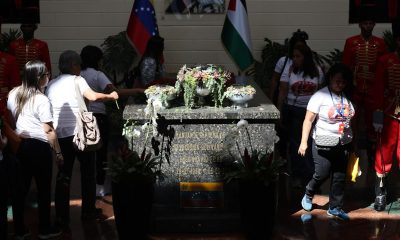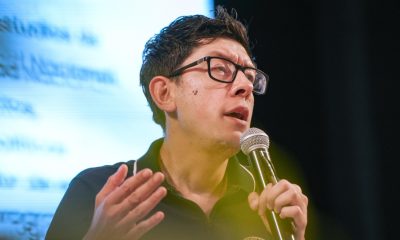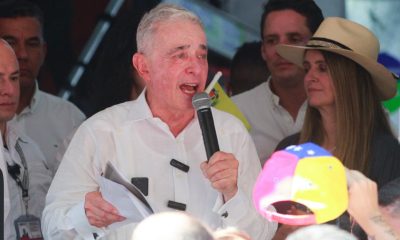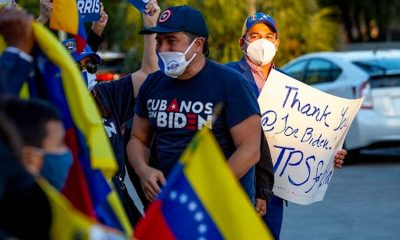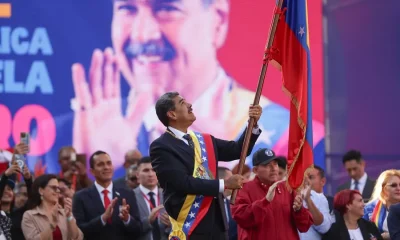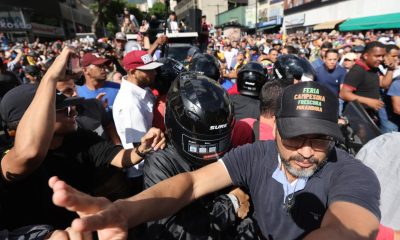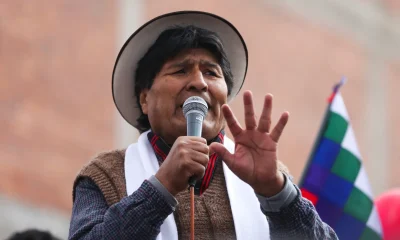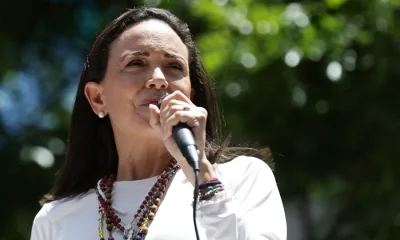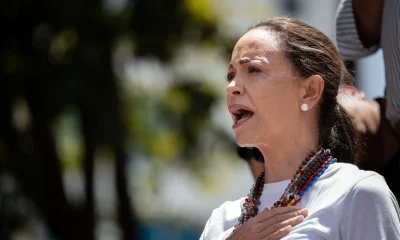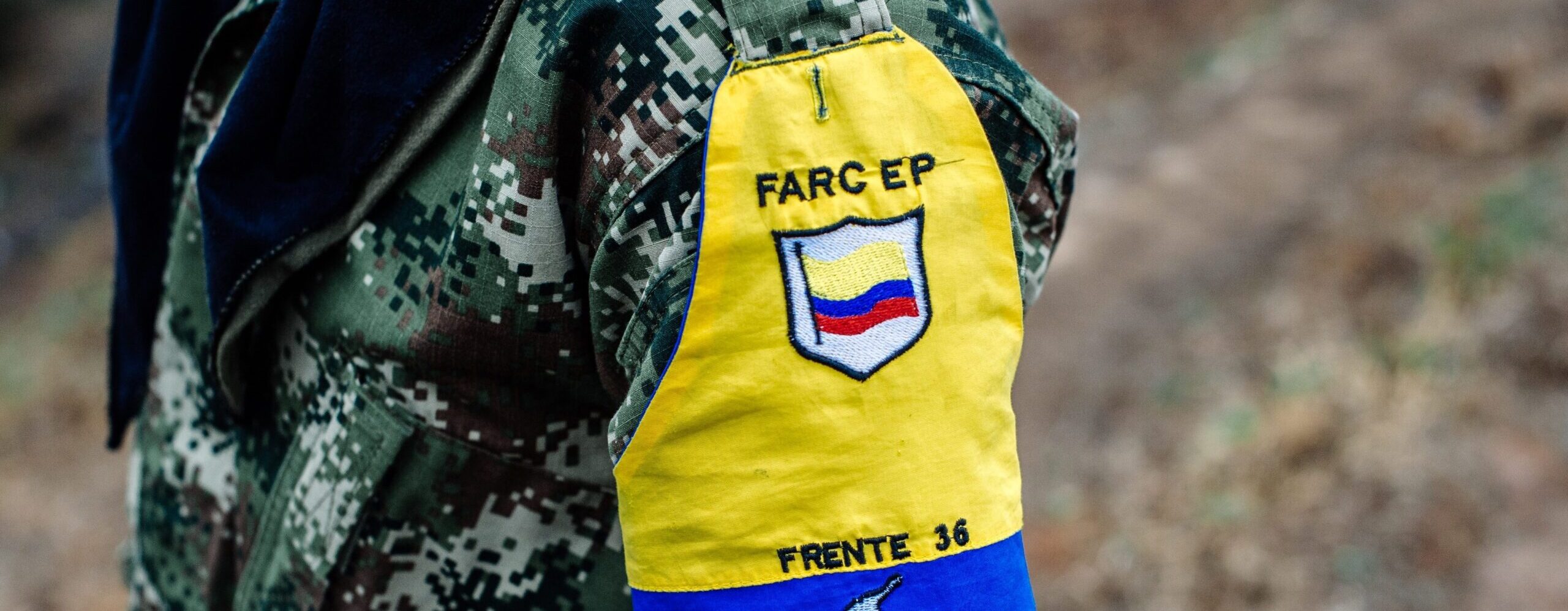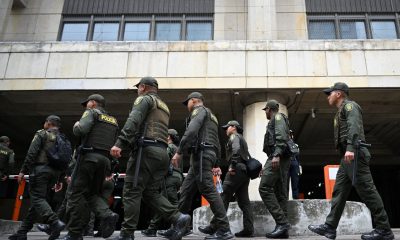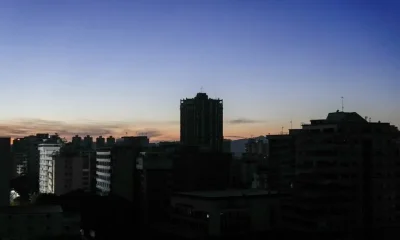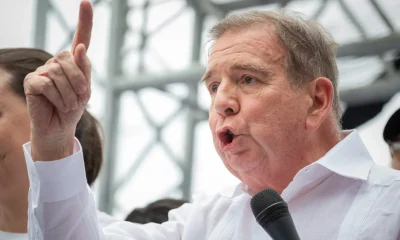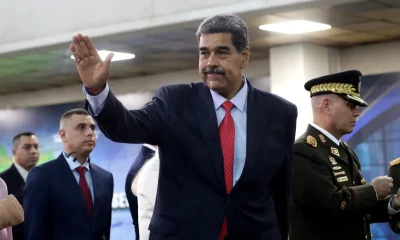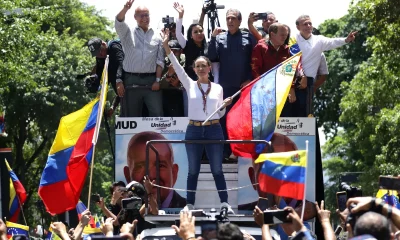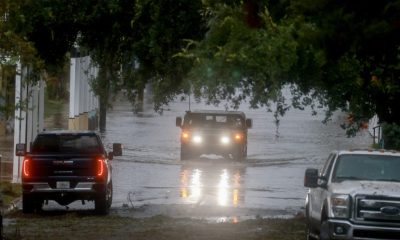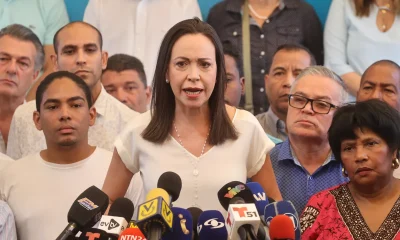International
Colombia will not send an observation mission for the presidential elections in Venezuela
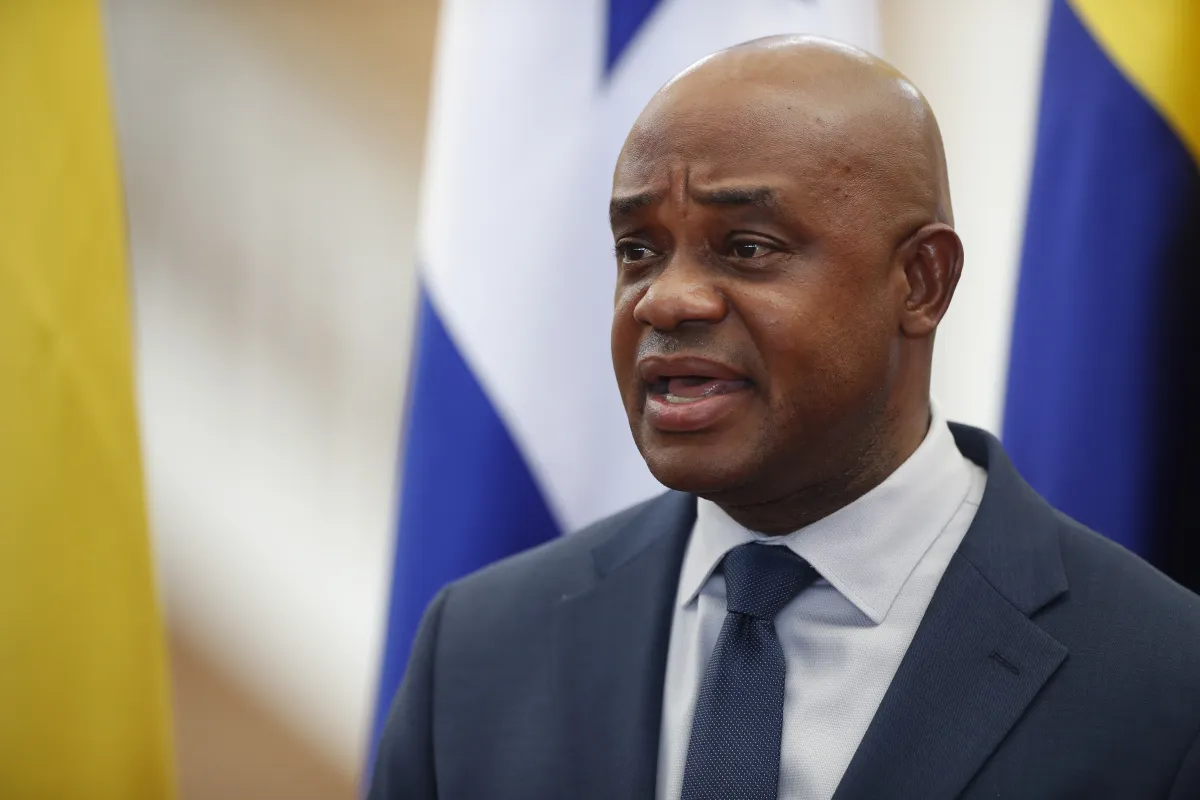
The Colombian Government will not send an electoral observation mission to the presidential elections of Venezuela on July 28, as it does not have enough time to structure it, the Foreign Minister of Colombia, Luis Gilberto Murillo, reported on Thursday.
“We obviously intended to be able to send some technical observers. We had conversations with the Electoral Observation Mission (EOM) to do so; however, due to the time, it was not possible to structure an observation with the technical characteristics required by the MOE,” Murillo explained to journalists.
Venezuelans are called to elect president in the elections to be held on July 28, for which they must be registered in the Electoral Registry.
Foreign Minister Murillo explained that “some Colombian personalities will be in that observation (…) in this we want to keep a lot of prudence, zero protagonism and also be able to contribute to what is within our reach on the part of the Government, the authorities and the Venezuelan people.”
He also said that the Colombian Government wants “this process to go well for the benefit of Venezuelans and also for the region where Colombia has a brotherhood with Venezuela and a closeness that is important to maintain it in good health.”
Regarding the elections in Venezuela, Murillo indicated that he has been talking with Venezuelan Foreign Minister Yván Gil, as well as with other countries in the region.
“We had talks with Foreign Minister Mauro Viera of Brazil yesterday (Wednesday) on the subject, also with Minister (Josep) Borrell” of the European Union (EU), he said.
The National Electoral Council (CNE) of Venezuela annulled last Tuesday the invitation to the EU to send an observation mission for the presidential elections due to the ratification of sanctions by the community bloc to members of the Government and the ruling party.
The presidential race in Venezuela has accelerated, less than two months before the elections, with Chavismo and opposition in the streets, making a proselytizing that does not stop, despite the changing reality that is conditioning the political environment and the confidence of the electorate.
President Nicolás Maduro and former ambassador Edmundo González Urrutia are the clear contenders of this battle, in which eight other candidates compete who do not stand out in the voting intentions collected by the pollsters.
International
Football Fan Killed in Clashes After Colombian League Match
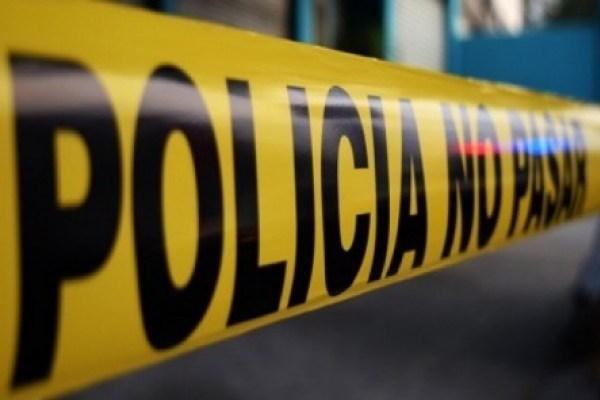
Fans of Cúcuta Deportivo and their traditional rivals Atlético Bucaramanga clashed outside the stadium following their local league match on Tuesday, leaving one supporter dead and several others injured.
The deceased fan was stabbed, according to a senior police official in Cúcuta who confirmed the cause of death in a video statement. Local media reported that the victim was a supporter of the visiting team, Atlético Bucaramanga.
The match ended in a 2-2 draw. Authorities had banned the entry of Atlético Bucaramanga’s organized supporters into the stadium in an effort to prevent disturbances.
Despite the restrictions, violence broke out in the surrounding areas after the game. Among the injured were three police officers, an institutional source told AFP.
The incident adds to a series of recent violent episodes linked to Colombian football. The most recent occurred in December, when supporters of Atlético Nacional and Independiente Medellín clashed in the stands and on the pitch, leaving 59 people injured.
International
Missing Spanish Sailor Rescued After 11 Days Adrift in Mediterranean

The man had departed from the port of Gandía, on Spain’s eastern coast, with the intention of reaching the southern Spanish town of Guardamar del Segura, a journey of about 150 kilometers, a spokesperson for Spain’s maritime rescue service told AFP.
Search boats and aircraft were deployed on January 17, but the operation was called off on January 22 after efforts proved unsuccessful. Alerts were then issued to vessels navigating the area in case they spotted any signs of the missing sailor.
As hopes were fading, a surveillance aircraft from the European Union’s border agency Frontex spotted the sailboat on Tuesday, along with a person signaling for help, approximately 53 nautical miles northeast of Bejaia, Algeria.
A nearby vessel, the Singapore-flagged bulk carrier Thor Confidence, carried out the rescue and is expected to bring the man to an end to his ordeal when it arrives on Thursday in the southern Spanish port city of Algeciras.
Maritime rescue services shared images on social media showing a small white sailboat drifting at sea and secured alongside the much larger ship.
It remains unclear how the sailboat ended up hundreds of kilometers off its intended route or how the man managed to survive for so long alone in open waters.
International
Rubio Says U.S. Could Participate in Follow-Up Russia-Ukraine Talks

The United States could join a new round of talks this week aimed at ending Russia’s invasion of Ukraine, Secretary of State Marco Rubio said on Tuesday.
Teams from Kyiv and Moscow met last Friday and Saturday in Abu Dhabi in their first publicly acknowledged direct negotiations to discuss the peace initiative promoted by former U.S. President Donald Trump.
“They are going to hold follow-up talks again this week,” Rubio told the Senate Foreign Relations Committee. “There could be U.S. participation.”
However, Rubio suggested that Washington’s role may be more limited than during last week’s discussions, which included Steve Witkoff, the president’s special envoy, and Jared Kushner, Trump’s son-in-law.
The secretary of state indicated that progress may have already been made on security guarantees for Ukraine, one of Kyiv’s key demands in any agreement with Moscow after nearly four years of Russian invasion.
“There is one remaining issue that everyone is familiar with, and that is the territorial claim over Donetsk,” Rubio said, referring to the eastern Ukrainian region that Russia wants Ukraine to cede.
“I know that active efforts are underway to see whether the positions of both sides on this issue can be reconciled. It remains a bridge we have not yet crossed,” he added during the hearing.
Rubio acknowledged that the territorial question would be particularly difficult for Ukraine to resolve.
-

 Central America3 days ago
Central America3 days agoGuatemala seizes over a ton of cocaine hidden in flour at Pacific port
-

 International5 days ago
International5 days agoTrump-Era Defense Plan Prioritizes Border Security and Scales Back Global Commitments
-

 International5 days ago
International5 days agoBogotá and Quito Seek Dialogue After Tariffs and Power Cut Escalate Tensions
-

 International4 days ago
International4 days agoDelcy Rodríguez seeks political agreements after Maduro’s ouster
-

 International3 days ago
International3 days agoHistoric snowstorm paralyzes Toronto after 60 centimeters of snow
-

 International3 days ago
International3 days agoSpain’s irregular migrant population rises to 840,000, study finds
-

 International4 days ago
International4 days agoFederal immigration agents kill man in Minneapolis, sparking protests and outrage
-

 Central America2 days ago
Central America2 days agoGuatemala Police Arrest Prison Guard Caught in the Act of Extortion
-

 Central America2 days ago
Central America2 days agoHonduras swears in conservative president Asfura after disputed election
-

 Central America2 days ago
Central America2 days agoBukele leads public trust rankings as UCA survey highlights gains in security
-

 Sin categoría2 days ago
Sin categoría2 days agoEight Killed in Series of Armed Attacks in Ecuador’s Manabí Province
-

 International3 days ago
International3 days agoRights group says nearly 6,000 killed in Iran protest crackdown
-

 International2 days ago
International2 days agoDoomsday clock moves to 85 seconds before midnight amid rising global risks
-

 International2 days ago
International2 days agoWinter Storm Fern Leaves 30 Dead and Over One Million Without Power Across the U.S.
-

 International3 days ago
International3 days agoVenezuela frees at least 80 political prisoners, NGO says
-

 International2 days ago
International2 days agoSpain approves plan to regularize up to 500,000 migrants in Historic Shift
-

 Sin categoría2 days ago
Sin categoría2 days agoEl Salvador Launches Fourth Year of Ocean Mission to Protect Marine Ecosystems
-

 International9 hours ago
International9 hours agoFootball Fan Killed in Clashes After Colombian League Match
-

 International9 hours ago
International9 hours agoRubio Says U.S. Could Participate in Follow-Up Russia-Ukraine Talks
-

 International3 days ago
International3 days agoEU launches new probe into X over AI-generated fake nude images
-

 International9 hours ago
International9 hours agoMissing Spanish Sailor Rescued After 11 Days Adrift in Mediterranean
-

 Central America9 hours ago
Central America9 hours agoGuatemala President Says Starlink Terminal Found Inside Prison
-

 International3 days ago
International3 days agoSevere winter storm grips U.S., leaves multiple dead as extreme cold persists
-

 International3 days ago
International3 days agoFrance debates ban on social media for children under 15































